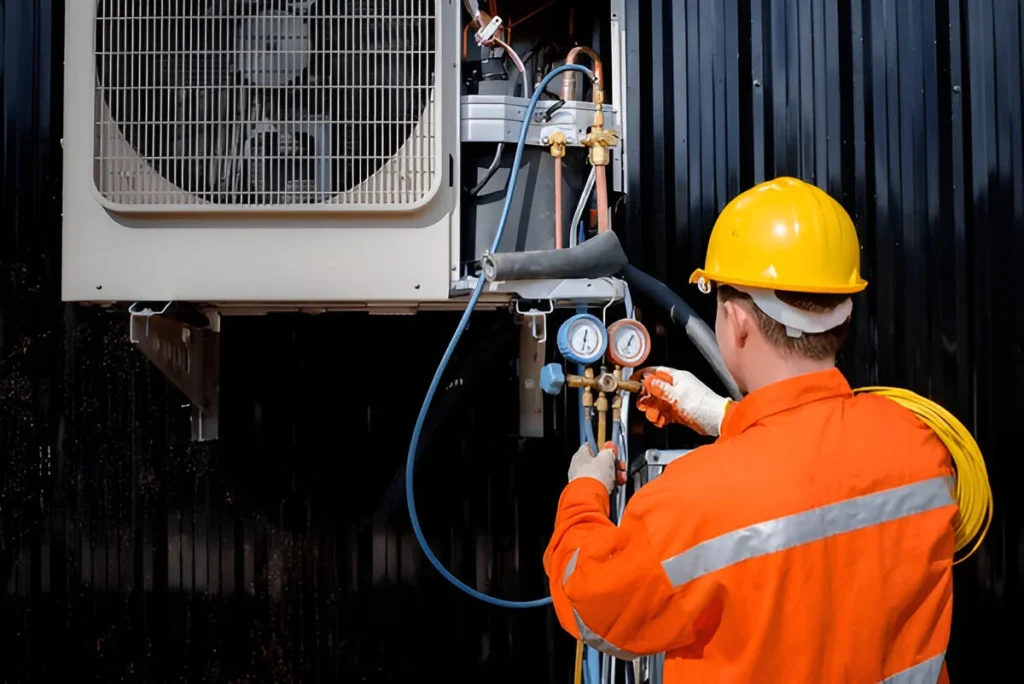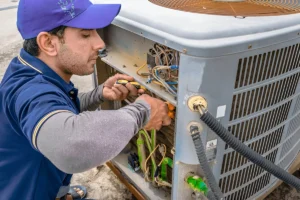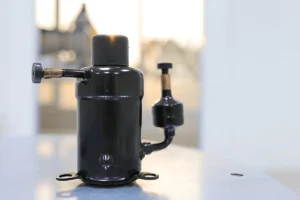
By Admin
AC compressor health matters for smooth cooling and long life. Learn expert tips and best practices from a reputed AC repair service center.

The compressor is often called the “heart” of an air conditioner. It regulates refrigerant flow, ensures efficient cooling, and keeps the system running smoothly. Without proper maintenance, the compressor can fail prematurely, leading to costly repairs or replacements. For students, professionals, and families alike, knowing how to maintain AC compressor health can save money, improve comfort, and extend the lifespan of your cooling system.
Understanding the early symptoms of a struggling compressor helps prevent major damage. Watch out for:
Unusual noises like rattling, clunking, or buzzing
Warm air blowing instead of cool air
AC tripping frequently on the circuit breaker
Reduced airflow despite running at full power
High electricity bills without extra usage
If any of these symptoms appear, immediate attention is needed.

Low or leaking refrigerant forces the compressor to work harder, reducing its efficiency and lifespan.
Dust and dirt create blockages, trapping heat and putting extra stress on the compressor.
Loose wiring or voltage imbalances can lead to compressor burnout.
High outdoor temperatures or poor ventilation around the unit can cause overheating.
Ignoring seasonal servicing shortens compressor life significantly.

Replace or wash filters every 1-2 months.
Clogged filters block airflow, forcing the compressor to overwork.
Always check refrigerant levels during routine servicing.
Never attempt DIY refills—use professionals to avoid damage.
Remove leaves, dirt, or debris from the condenser area.
Maintain at least 2-3 feet of clearance for airflow.
Annual servicing helps detect small issues before they escalate.
Professionals can lubricate moving parts, inspect wiring, and test efficiency.
Don’t set temperatures extremely low for prolonged hours.
Use timers or energy-saving modes when not needed.
Keep wiring, switches, and fuses checked by an expert.
Prevents voltage fluctuations that harm the compressor.
For year-round efficiency, follow this simple routine:
Before summer: Clean coils, check refrigerant, service filters.
During summer: Inspect wiring, monitor performance weekly.
After summer: Get a post-season tune-up to reduce wear.
Winter months: Cover the outdoor unit if unused, to protect from dust and moisture.
Even with the best DIY care, some issues require advanced knowledge. Timely inspection and servicing from reliable technicians—like those offering the Best AC repair services in Kolkata—ensure compressors stay efficient and safe. Combining self-care with expert checks guarantees long-term performance.
✅ Do clean air filters often
✅ Do keep the outdoor unit ventilated
✅ Do get professional servicing yearly
❌ Don’t ignore strange noises or odors
❌ Don’t block airflow with clutter around the unit
❌ Don’t overload the AC with extreme temperature settings

Q1. How often should I service my AC compressor?
At least once a year is recommended, ideally before the peak summer season.
Q2. Can low refrigerant damage the compressor?
Yes, running an AC with low refrigerant overworks the compressor and can cause permanent damage.
Q3. Is it safe to clean the compressor myself?
You can clean the exterior and surrounding area, but internal cleaning should be left to professionals.
Q4. Why does my AC compressor overheat?
Dirty coils, poor airflow, or electrical issues often cause overheating. Regular maintenance helps avoid this.
Q5. What is the average lifespan of an AC compressor?
With proper care, most compressors last 10–15 years. Lack of maintenance can cut this lifespan in half.
Taking steps to preserve AC compressor health ensures uninterrupted cooling, energy savings, and fewer repair bills. While small maintenance habits like cleaning filters and keeping units ventilated go a long way, combining them with professional servicing offers the best protection. A well-maintained compressor not only extends the life of your air conditioner but also guarantees comfort during every season.